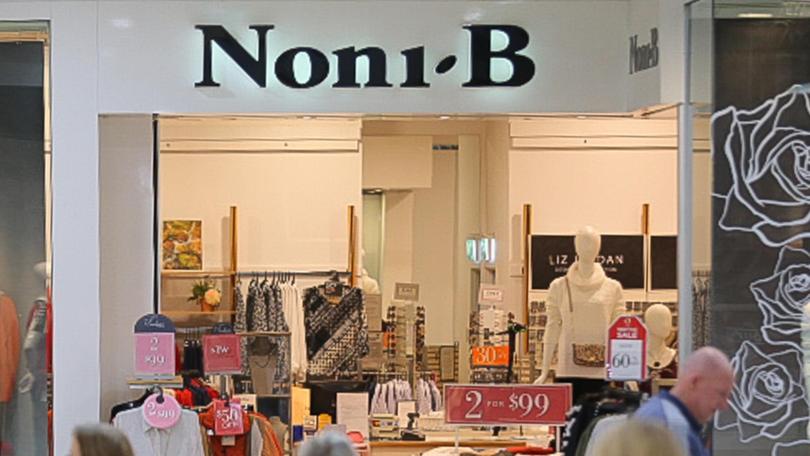Mosaic Brands administration: Retailer behind mall mainstays Millers, Noni B and Katies goes under
The future of 700 Australian retail shops hangs in the balance after the business behind brands Millers, Noni B and Katies called in administrators.

The business behind retailers Millers, Noni B and Katies has called in administrators after failing to ink a restructuring plan.
ASX-listed Mosaic Brands told shareholders on Monday that FTI Consulting had been appointed to attempt a rescue of the rag trader, which runs about 700 stores across the country.
That followed a move by Mosaic’s key lender to install KPMG as receivers.
Sign up to The Nightly's newsletters.
Get the first look at the digital newspaper, curated daily stories and breaking headlines delivered to your inbox.
By continuing you agree to our Terms and Privacy Policy.“Over the past few weeks, Mosaic’s board and executive team have progressed plans to restructure, realign and simplify Mosaic’s operations, as previously announced to the market,” the board told investors.
“These initiatives have included rationalising the group’s brand and store portfolio and focusing on key growth brands, reducing costs and improving Mosaic’s working capital position.”
Those restructure plans have included slashing costs and exiting less popular outlets — including Rockmans, Autograph and Crossroads.
But the board said a “small number” of stakeholders had not supported the proposals.
Mosaic’s main lender is Hilco, after the company refinanced a Commonwealth Bank debt facility earlier this year, according to an April announcement to the ASX.
KPMG will run the retailer while FTI looks to bring on fresh capital or find a new owner.
“The Mosaic Brands group owns a portfolio of iconic fashion labels whose clothing and products are much loved by generations of Australians,” KPMG restructuring partner David Hardy said in a statement.
“We will be seeking to stabilise the operations of Mosaic to preserve the underlying value of the business while endeavouring to serve its customers, with support from its employees and suppliers to minimise business interruption.”
In that statement, Mosaic’s management team touted the move as necessary to reset the business.
“Mosaic Brands continues to be an exciting opportunity to reshape a business with a clearly defined market proposition for its target customers, and employees, that we can be proud of,” Ms Berchtold said.
“Our priority is to accelerate the rationalisation plans we have in place to focus on the core brands to service current and attract new customers across metropolitan and importantly regional Australia.”
Mosaic’s shares last traded at 3.6¢, down from a recent peak of more than 20¢ earlier this year.
It’s been a rough 2024 for the Sydney-based outfit.
Erica Berchtold was appointed chief executive in late February following the departure of Scott Evans, while chief financial officer Luke Softa left just months later and was replaced by David Clarke.
The company’s most recent full financial statement showed debts of $374 million at the end of 2023 — about $60m less than the value of Mosaic’s assets.
That shortfall is often a sign of impending collapse.
Markets were told in June that the company had suffered a challenging six months amid a rough period for discretionary consumer spending.
But an annual report for the 2024 financial year was delayed and the business was suspended from quotation in the market.
Shareholders instead relied on a quarterly trading update which flagged a whopping loss of up to $20 million on earnings before interest and tax.
The Australian Competition and Consumer Commission took the business to the Federal Court in March for failing to meet advertised delivery times, warning there had been “ hundreds of complaints”.
Mosaic had advertised delivery within two to 17 business days, the ACCC claimed.
Some customers had been left waiting about six weeks before items even left the company’s warehouse, the competition watchdog alleged.
That fight is still live, with Mosaic’s Monday statement saying “a commercially acceptable resolution could not be reached with the ACCC”.
